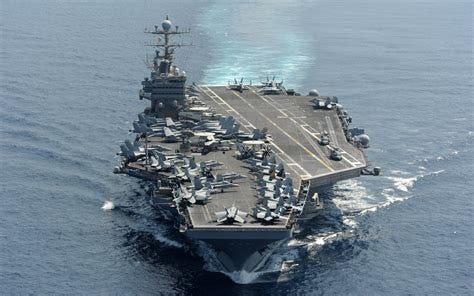Noah Smith has posted an interesting interview with Sarah Paine who looks at the distinction between maritime powers (in modern history, Britain and the US) and continental powers (everyone else). Paine sees maritime powers as beneficent creators and upholders of a peaceful and rules-based international order It’s a distinction I’ve discussed in the past, but with very different views. Here’s a full-length response The maritime/continental distinction is crucial, but not in the way suggested here. The era of maritime dominance is over. That’s partly because the UK is now negligible as a power, and the US isn’t as dominant as it was. But it’s mainly because ships are an old technology that hasn’t advanced much over the past century or so, either in commercial or in
Topics:
John Quiggin considers the following as important: Uncategorized
This could be interesting, too:
tom writes The Ukraine war and Europe’s deepening march of folly
Stavros Mavroudeas writes CfP of Marxist Macroeconomic Modelling workgroup – 18th WAPE Forum, Istanbul August 6-8, 2025
Lars Pålsson Syll writes The pretence-of-knowledge syndrome
Dean Baker writes Crypto and Donald Trump’s strategic baseball card reserve
Noah Smith has posted an interesting interview with Sarah Paine who looks at the distinction between maritime powers (in modern history, Britain and the US) and continental powers (everyone else). Paine sees maritime powers as beneficent creators and upholders of a peaceful and rules-based international order

It’s a distinction I’ve discussed in the past, but with very different views. Here’s a full-length response
The maritime/continental distinction is crucial, but not in the way suggested here. The era of maritime dominance is over.
That’s partly because the UK is now negligible as a power, and the US isn’t as dominant as it was.
But it’s mainly because ships are an old technology that hasn’t advanced much over the past century or so, either in commercial or in military terms. Average speed has barely changed since the advent of steam. Meanwhile aerospace (including drones and missiles) and telecoms have advanced massively.
In military terms, navies ceased to be useful long ago (once aircraft and missiles no longer needed carriers to cover vast distances). No one noticed until recently because there hadn’t been any significant naval combat (the Falklands war had lessons, but they were ignored). But the humiliating defeat of Russia’s Black Sea Fleet by a country whose own navy lasted one day in the Ukraine war tells the story. Ships can’t hide in the open sea any more, and they can’t escape from missiles and drones.
In commercial terms, air has replaced sea transport in most high-value goods trade (particularly passenger travel), and telecommunications has made transport of all kinds less relevant.
Ships are still important for bulk transport, but the economic importance of “vital trade routes” was always overstated, and is now negligible. If the current ME conflict continues, we’ll see this. Or rather we won’t see it because the economic impact of longer shipping times will be imperceptible against the general background noise of economic shocks.
Meanwhile, maritime powers (the UK, then US) have made up rules that benefit them (for example, Freedom of Naval Operations) and erected them into sacred principles. Attempts to coerce continental powers like China into respecting those rules will achieve nothing, while risking an accidental outbreak of war.
